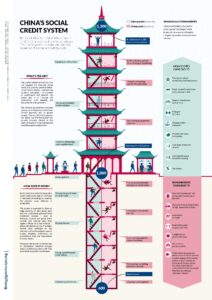
SOPs enhance flight safety by helping flight crews conform their actions to recommendations by aircraft manufacturers and by standardising operations. SOPs should include and emphasise aspects that avoid errors and deviations that are frequently associated with incidents and accidents.
Standard Operating Procedures evolve over a long period of time with much thought and experience gone into them. They need to be followed strictly in letter and spirit.
Purpose. Standard Operating Procedures (SOPs) serve a number of purposes such as:
- Ensuring that aircraft is flown correctly in accordance with the manufacturer’s guidelines.
- Promote adherence to the manufacturers operating philosophy.
- Promote operational safety.
- Promote operational efficiency.
- Utilise aircraft resources and functionality appropriately.
Violations. Sometimes pilots do get tempted to adjust, reorder or even skip some SOPs. Reasons could be:
- They feel that the SOP doesn’t exactly fit the situation at hand.
- They would take more time than a widely accepted shortcut.
- Perception of existence of a better method.
Ramifications. Not following SOPs in letter and spirit could create problems as follows:
- Ad hoc operations have the risk of missing out on some critical factor.
- Reordering SOP have the risk of forgetting something important or failing to consider any sequential priorities.
- Crew resource management (CRM) becomes more difficult as other crew members will have to guess about our procedures and techniques.
- First Violation (and getting away with it) may encourage subsequent repeated violations.
- Violation by one may encourage others making it organisational culture to skip SOPs.
Correct Approach. Any situation that creates a doubt about an SOP in the minds of crew should be reviewed in a formal and planned manner. The steps could be as follows:
- Analyse the existing SOP, try to understand why the SOP exists in its form.
- If one feels that some aspect needs to be changed as a better and improved alternative solution exists – study the changes and repercussion in more detail.
- Discussion with other more experienced crew and peer group helps in this process and is recommended.
- The suggestion needs to be put up for change to those who have the power to change it.
- Flight department leaders should, select a well-experienced team to spearhead the study and obtain manufacturer comments if required.
- The change should be adequately debated and tested if required.
- Once it is decided that the SOP is to be changed, it should be documented at all the relevant places.
- All Crew should be made aware of the new SOP.
Adherence to SOPs: Some Other Factors.
Training. Training is only as good as the teaching staff or instructor. Relevant aspects are as follows:
- Any Instructor with a deviant behaviour of cutting corners or ignoring SOPs can have a damaging influence on potential crew.
- Lack of proper oversight by the instructors could also lead to development of deviant habits.
- Simulators have lot of scope for getting away with deviations and short cuts. This may encourage such behaviour becoming a habit. Simulator Instructors need to be aware and vigilant about this aspect.
- Training should not become a square filling exercise.
Peer Group Influence. Peer group has a strong influence (especially during training period). In a peer group a subtle desire to demonstrate skills, impress others and compete can become a recipe for increased risk. Good crew can be corrupted by a poor peer groups.
Organisational Pressures. Crew at times come under extreme pressure to overlook SOPs to meet organisational goals and targets. This can lead to disastrous situations.
- Resorting to formal waivers should be an exception rather than a rule.
- Target fixation should be avoided at all costs.
- Mission accomplishment should not be at the cost of safety risk.
- “Safety first” motto should not only be quoted but religiously enforced.
Experience and Expertise. The machine does not know the expertise level of the pilot. The title of EXPERT demands maturity and extra safety consciousness. Skill, knowledge and experience of an expert does not give a license to deviate. Superior skill and experience should be used to avoid potential dangerous situations rather than getting out of them. There is no room for over confidence or complacency in the field of aviation.
Always Remember
In aviation mistake can occur anytime and even by best of the aviators. There is no scope of letting one’s guard down.
Suggestions and value additions are most welcome
For regular updates, please register here

